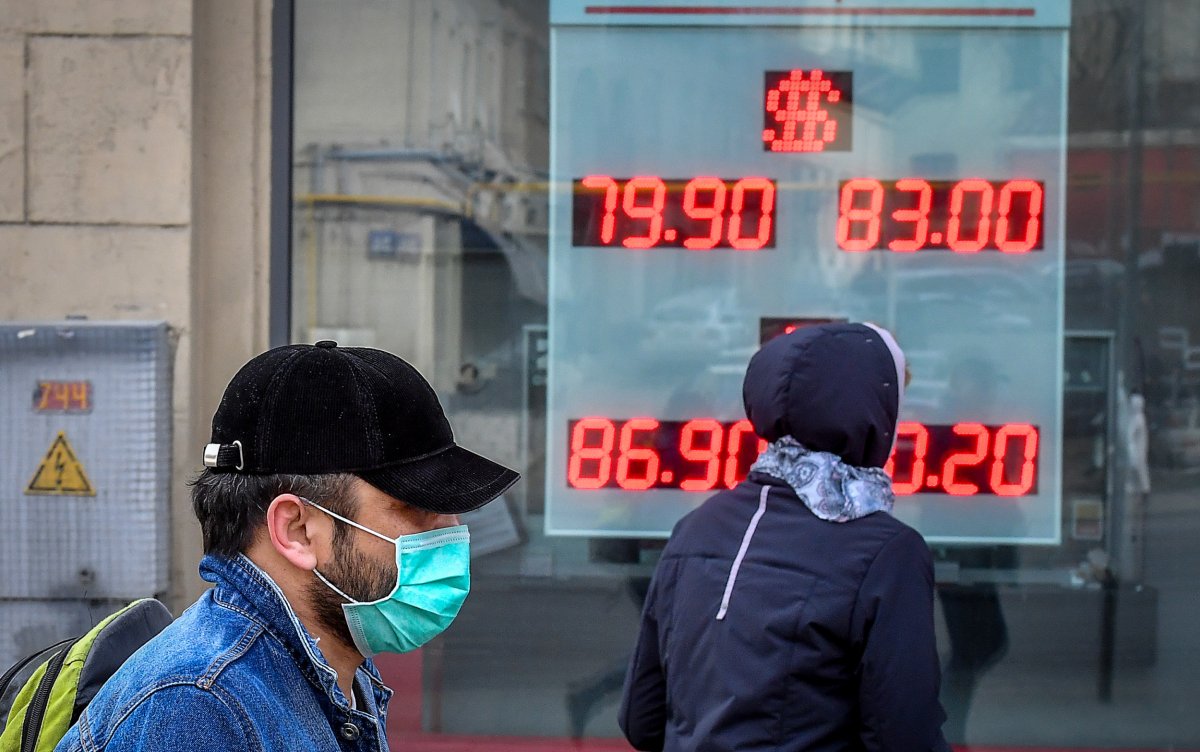The International Monetary Fund said the global economy is set to suffer the worst financial crisis since the Great Depression this year as governments worldwide deal with the coronavirus pandemic.
The Washington-based IMF is the latest financial organization placing expectations that the global economy will contract, predicting a 3 percent shrink in 2020. This prediction stands in stark contrast to its January forecast there would be a 3.3 percent global gross domestic product (GDP) expansion by the end of this year. The IMF's World Economic Outlook report for April describes "The Great Lockdown" as a "necessary protection" that is helping to curb the COVID-19 pandemic while simultaneously crushing economic activity on a global level. The IMF did provide a glimmer of economic hope, however, showing a 5.8 percent "partial rebound" by the end of 2021.
"It is very likely that this year the global economy will experience its worst recession since the Great Depression, surpassing that seen during the global financial crisis a decade ago," Gita Gopinath, the IMF's chief economist, wrote in the forward of the financial organization's April 2020 report.
The IMF report highlights the unprecedented actions and impact of the coronavirus economic lockdown, using repeated wartime comparisons to illustrate that "uncertainty is exceptionally high" in markets across the world. The World Economic Outlook report for this year predicts the global economy will "contract sharply" in the coming months, "much worse than during the 2008-09 financial crisis."
"The cumulative loss to global GDP over 2020 and 2021 from the pandemic crisis could be around $9 trillion, greater than the economies of Japan and Germany combined," the report's authors wrote.
A Bloomberg Economics tracking model created last year was updated this past week to show a "100 percent" chance of a U.S. recession within 12 months. The prediction comes off the United States' longest-running economic expansion. The model's 2020 spike into the range of complete certainty of a U.S. recession has only been paralleled in the months after the September 11, 2001 attacks and in the years surrounding the start of the 2008 Great Recession.
Additionally, the World Trade Organization predicted in a report published last week that global trade will fall by between 13 and 32 percent in 2020.
The IMF forecast still leaves open a partial recovery of GDP shrinkage on the global level the following year. However, the predictions note that government policies and protections must be enacted to prevent even worse outcomes from forming over the next several months, particularly if there is a "second wave" of coronavirus cases and deaths. "A partial recovery is projected for 2021, with above-trend growth rates, but the level of GDP will remain below the pre-virus trend, with considerable uncertainty about the strength of the rebound," Gopinath wrote in the report released Tuesday.
The report appeared to offer support for government stimulus packages like the $2 trillion plan passed by Congress earlier this month.
"While the economy is shut down, policymakers will need to ensure that people are able to meet their needs and that businesses can pick up once the acute phases of the pandemic pass," the IMF report said. "This requires substantial targeted fiscal, monetary and financial measures to maintain the economic ties between workers and firms and lenders and borrowers, keeping intact the economic and financial infrastructure of society."

Uncommon Knowledge
Newsweek is committed to challenging conventional wisdom and finding connections in the search for common ground.
Newsweek is committed to challenging conventional wisdom and finding connections in the search for common ground.
About the writer
Benjamin Fearnow is a reporter based out of Newsweek's New York City offices. He was previously at CBS and Mediaite ... Read more
To read how Newsweek uses AI as a newsroom tool, Click here.






